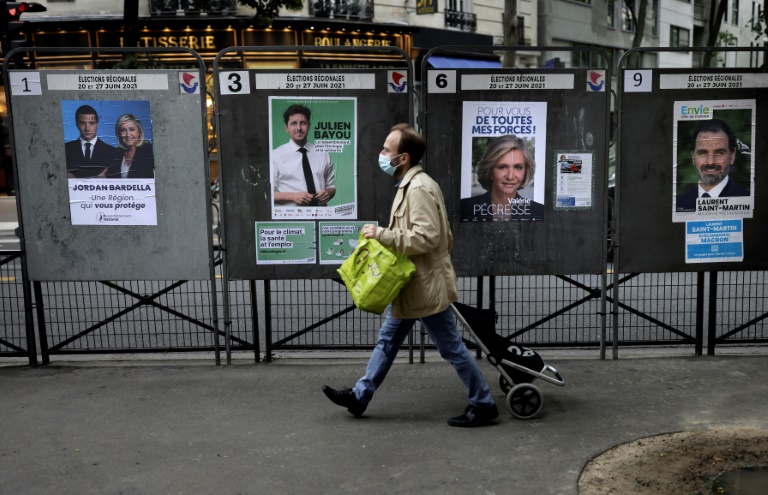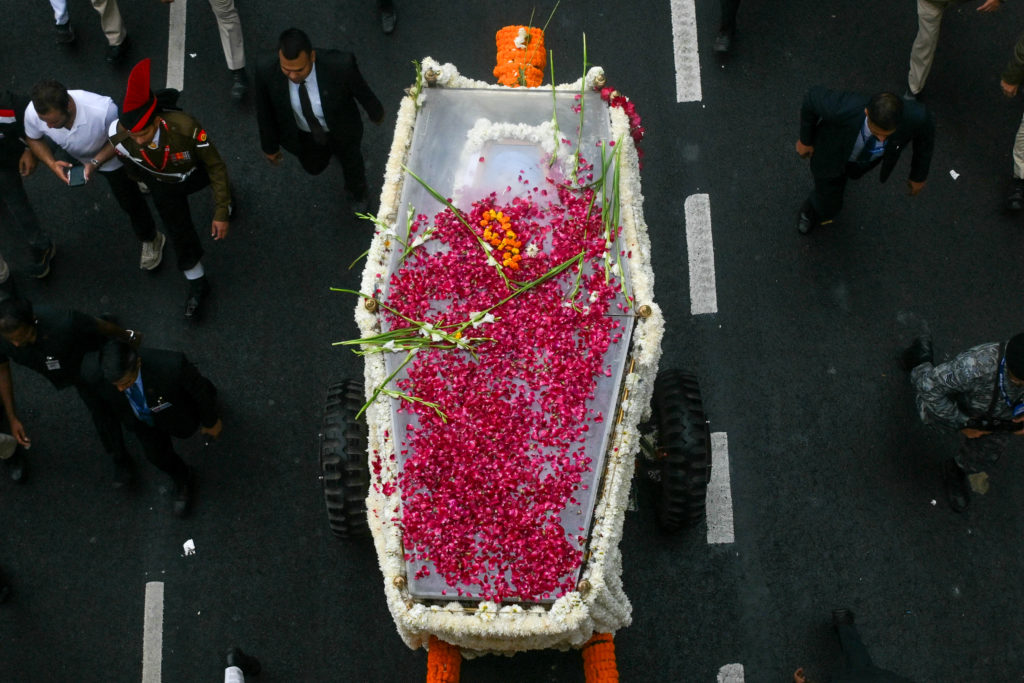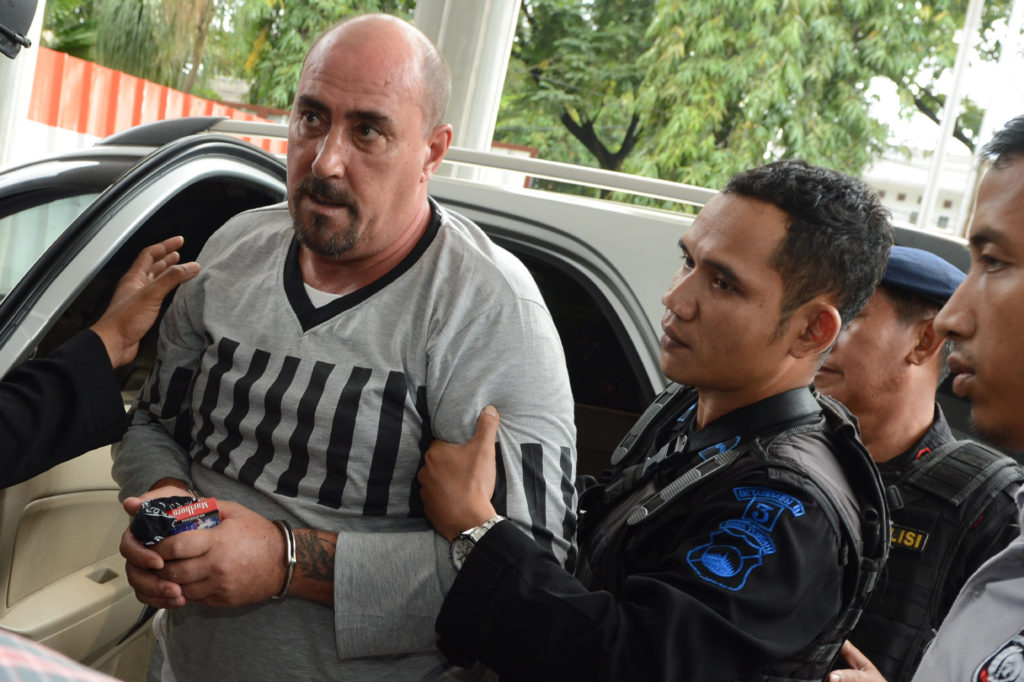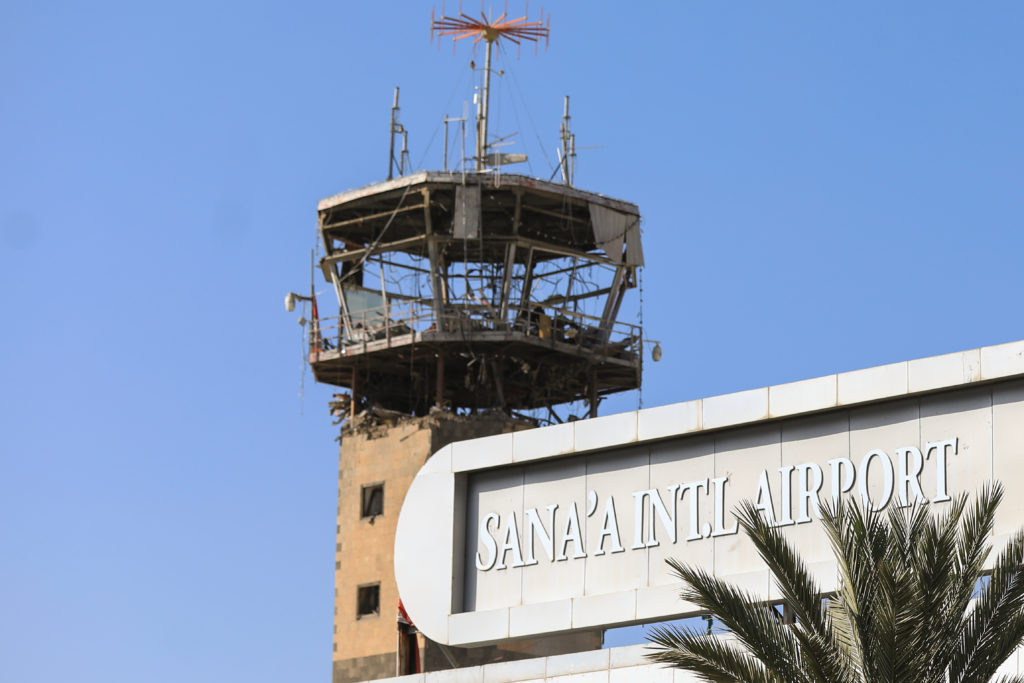France was voting in the second round of regional elections Sunday seen as a test for centrist President Emmanuel Macron and the far-right of Marine Le Pen, but with voter participation so far showing no improvement from the woeful first phase turnout.
The June 20 first round saw Macron’s ruling party suffer another poll drubbing and the National Rally (RN) of Le Pen fall well short of expectations.
That has led some observers to say it is far from a foregone conclusion that 2022 presidential election will come down to a duel between the two rivals.
The first-round results marked a boost for the traditional right-wing The Republicans as well as the Socialist Party, who were squeezed after the centrist Macron surged into power in 2017 with his brand-new Republic on the Move (LREM) party.
Analysts warn against extrapolating too much from regional election results for the heads of France’s 13 mainland regions — from Brittany in the northwest to the Provence-Alpes-Cote d’Azur (PACA) region in the southeast.
But there was cross-party concern over the turnout for last week’s polls, shunned by 66.72 percent of voters, a record in modern France, an indication of an increasing gulf between voters and the political elite.
With turnout registered at just 12.66 percent at midday in the second round, there was little hope of any drastic improvement.
“I don’t really know what the point is,” said Helene Debotte, 31, who said she would not vote in these polls but would in the presidential elections. “There, it’s clear what is at stake.”
Polls have shown most French do not know who leads their regions and what the entities do.
“I am going to vote but I don’t know what it’s worth,” said pensioner Hugues Hubert, 66. “What will the candidates do? No idea!”
– Far-right eyes breakthrough –
The first-round results put Le Pen’s RN ahead in just one region, PACA, a major disappointment for them after pre-election opinion polls suggested a possible breakthrough in several areas.
One of the most closely watched races on Sunday will be whether the RN candidate Thierry Mariani there can defeat his right-wing rival Renaud Muselier.
Gaining control of a region for the first time would be a huge boost for Le Pen as she seeks to convince voters that the RN — which she has rebranded since taking over from her firebrand father Jean-Marie — is a serious party of power.
Muselier could be helped by the withdrawal of left-wing candidates, an example of the “Republican Front” seen in past presidential elections to block the far-right.
Mariani has been accused by critics of being an admirer of authoritarians like Russian President Vladimir Putin and Syrian leader Bashar al-Assad. Prime Minister Jean Castex warned last week that a Mariani victory would be “very serious” for the country.
The RN also came up short in the Ile-de-France region that includes Paris. Its 25-year-old rising star Jordan Bardella failed to trouble right-wing incumbent Valerie Pecresse who is favourite to hold off a coalition of the left and greens.
Right-wing heavyweight Xavier Bertrand meanwhile looks set to hold onto the northeastern Hauts-de-France, cementing his credibility as a 2022 presidential challenger from the traditional right.
– Not Macron, Le Pen? –
The first-round results made even more unpalatable reading for Macron and his LREM, confirming the party’s failure to put down local and regional roots despite controlling the presidency and lower house of parliament.
Despite sending several ministers to campaign and Macron himself embarking on a nationwide tour — that saw him slapped by an onlooker at one point — in some regions LREM did not muster the required 10 percent to make round two.
“2022: What if it wasn’t them?” asked the headline in the left-wing Liberation newspaper over a picture of Macron and Le Pen.
LREM has almost no chance of winning control of a single region and is currently just number five among political parties in France.
The Socialists are expected to retain several regions, partly due to second round pacts with the far-left France Unbowed (LFI) party and Green Europe Ecology – The Greens (EELV).
With help from the left, the EELV meanwhile still fancy their chances of taking the Pays de la Loire region with their candidate Matthieu Orphelin, a former member of Macron’s party.
Voting began at 8:00 am (0600 GMT) on Sunday, with the last polling stations due to close 12 hours later.










